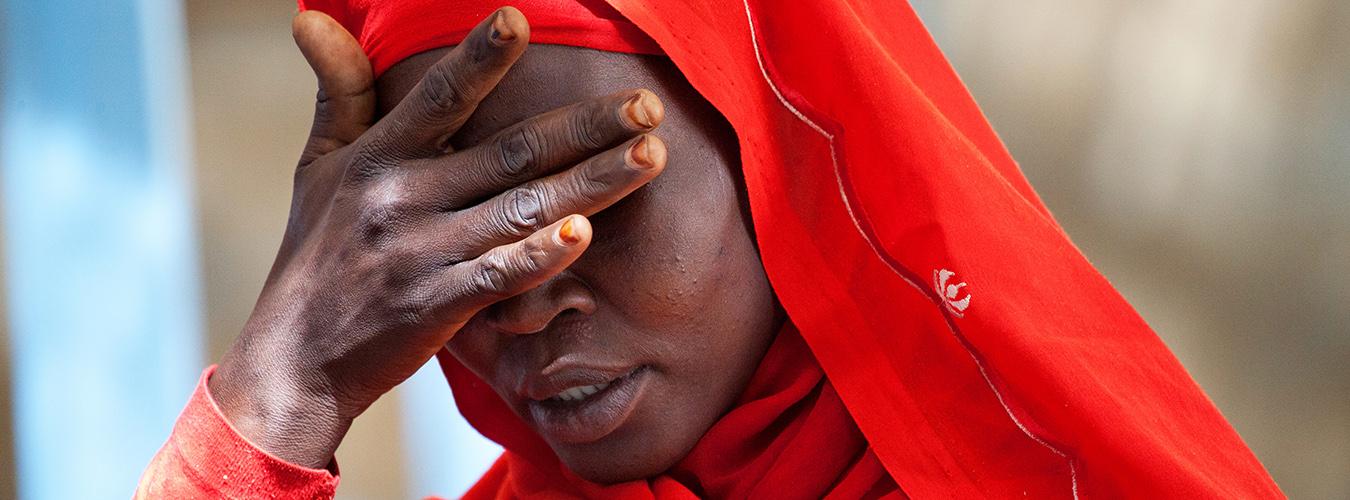
The impact of COVID-19 on survivors of conflict-related sexual violence

On 19 June 2015, the United Nations General Assembly proclaimed 19 June of each year the International Day for the Elimination of Sexual Violence in Conflict, in order to raise awareness of the need to put an end to conflict-related sexual violence, to honour the victims and survivors of sexual violence around the world and to pay tribute to all those who have courageously devoted their lives to and lost their lives in standing up for the eradication of these crimes.
But as the day is marked globally, the coronavirus pandemic is impacting dramatically the lives of victims and survivors of conflict-related sexual violence (CRSV), as well as all aspects of the work carried out by the Offices of the SRSG on Sexual Violence in Conflict ansd SRSG on Children and Armed Conflict, and the United Nations as a whole.
Already a dramatically under-reported crime, CRSV has been further obscured by this pandemic.
COVID-19 hampers the possibility of survivors to report sexual violence and further exacerbates the existing structural, institutional and socio-cultural barriers to reporting such crimes.
On 23 March, the Secretary-General issued a global call for a ceasefire in the face of the COVID-19 pandemic, stating that such a global ceasefire would “bring hope to places among the most vulnerable to COVID-19.”
Combatting impunity for sexual violence is a central aspect of deterring and preventing such crimes.
It is also a central element of providing redress for victims. In this regard, COVID-19 has a significant and detrimental impact on all aspects of the rule of law response including accountability for CRSV.
This entails limitations on the availability and capacity to receive and process reports on incidents of sexual violence by law enforcement and judicial authorities.
Services needed by survivors risk being deprioritized in many settings, including shelters, health care services, police and justice sector services.
This pandemic is severely impacting the delivery of the range of medical, psychosocial and legal services required to support survivors of CRSV.
There are reports of shelters for gender-based violence survivors being closed and mobile clinics and counselling services being cancelled and resources being diverted.
Another obstacle to accessing services is fear of the spread of the virus. Health providers and emergency first responders are often the first point of contact for survivors of sexual violence.
Yet, women including survivors of sexual violence may be less willing to seek help, particularly for health services, because of perceived risks of contracting COVID-19, for fear of infection and the potential for transmitting the virus to their families.
Stay-at-home restrictions and other measures inhibiting the movement of people have contributed to an increase in domestic and gender-based violence. Women and girls already in abusive situations are more exposed to increased control and restrictions by their abusers, with little or no recourse to seek support. Accessing help can also be more difficult due to confinement with the abuser.
Finally, quarantines and other restrictions on movement are also disrupting the monitoring, reporting and outreach work of Senior Women Protection Advisers, Child Protection Advisers, and United Nations entities mandated to gather information, verify violations and enhance compliance by both State and non-State parties with international obligations, including relevant Security Council resolutions.
2020 Event
A virtual event was scheduled on 19 June 2020 (10 a.m. to 11:30 a.m. EST) to mark the sixth annual International Day for the Elimination of Sexual Violence in Conflict.
Co-hosted by the Office of the SRSG on Sexual Violence in Conflict, the Office of the SRSG for Children and Armed Conflict, and the Permanent Mission of Argentina to the United Nations, the purpose of this event is to outline a number of implications and consequences related to the effects of COVID-19 on the lives of the survivors, as well as on the delivery of the CRSV mandate and the work of the UN system as a whole.






